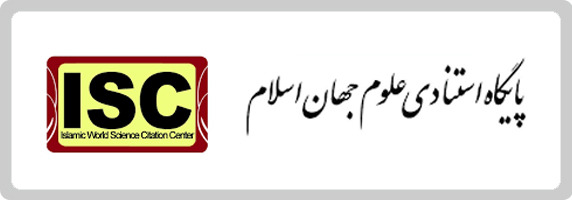تعلیم و تربیت به مثابه گفتوگو: بازخوانی اندیشههای باختین در آموزش
کلمات کلیدی:
گفتوگومندی, چندآوایی, پاسخمندی, تعلیم و تربیت دیالوژیک, نظریه باختینچکیده
هدف این مقاله، بازخوانی مفاهیم بنیادین اندیشههای میخائیل باختین در زمینه زبان، گفتوگو، و چندآوایی و تبیین ظرفیتهای آن برای بازتعریف تعلیم و تربیت در جهان معاصر است. این پژوهش از نوع مروری-مفهومی با رویکرد تحلیل توصیفی و روایتمحور است. منابع مورد استفاده شامل آثار اصلی باختین، تحلیلهای انتقادی پیرامون نظریههای او و مطالعات کاربردی در زمینه آموزش در بازه زمانی ۲۰۰۰ تا ۲۰۲۵ بودهاند. فرایند تحلیل بهصورت نظاممند و مبتنی بر تفسیر مفاهیم کلیدی در بستر تربیتی انجام شده است. یافتههای این مقاله نشان میدهد که مفاهیمی مانند گفتوگومندی، چندآوایی، پاسخمندی و کارناوالگرایی میتوانند بنیاد نظری و عملی مناسبی برای تحول در نظامهای آموزشی فراهم سازند. این مفاهیم، ساختار قدرت در کلاس درس را بازتعریف کرده، نقش معلم و دانشآموز را از مواضع اقتدار و انفعال به روابط مشارکتی، خلاقانه و اخلاقی سوق میدهند. همچنین نشان داده شد که گفتوگو میتواند هم بهعنوان روش تدریس و هم ارزشیابی به کار رود و در آموزش زبان و علوم انسانی کاربرد عملی و مؤثر داشته باشد. مقاله حاضر استدلال میکند که اندیشههای باختین، ظرفیت نظری و کاربردی فراوانی برای نوسازی تعلیم و تربیت معاصر دارند. این رویکرد با عبور از الگوهای سنتی و سلسلهمراتبی، زمینه تربیتی تازهای مبتنی بر تعامل، تنوع، و خلق مشترک معنا فراهم میآورد.
دانلودها
مراجع
Axt, M., & Axt, D. (2019). On the Ethical Responsible Act, Polyphony, and the Aesthetic Perspective in the Bakhtinian View: Approaches With the Law. Anamorphosis - Revista Internacional De Direito E Literatura, 5(2), 417-437. https://doi.org/10.21119/anamps.52.417-139
Cooren, F., & Sandler, S. (2014). Polyphony, Ventriloquism, and Constitution: In Dialogue With Bakhtin. Communication Theory, 24(3), 225-244. https://doi.org/10.1111/comt.12041
Cornish, R. (2022). Unsilenced Employee Voice in South Africa: Social Media Misconduct Dismissals as Evidence of E-Voice. Management revue, 33(3), 356-396. https://doi.org/10.5771/0935-9915-2022-3-356
Domalewska, D. (2024). Dezinformacja Jako Zagrożenie Dla Demokracji I Regulacje Prawne W Zakresie Jej Przeciwdziałania W Polsce I Wybranych Krajach Europejskich. Politeja, 21(5(92)), 359-379. https://doi.org/10.12797/politeja.21.2024.92.16
Emerson, C. (2019). Bakhtin’s Radiant Polyphonic Novel, Raskolnikov’s Perverse Dialogic World. 173-208. https://doi.org/10.1093/oso/9780190464011.003.0008
Liu, Y. (2023). Coronation and Coronation Removal: A Study on the Live-streaming Rollover by Her Highness Qiaobiluo Based on Bakhtin's Carnival Theory. Lecture Notes in Education Psychology and Public Media. https://doi.org/10.54254/2753-7048/2/2022350
Mikes‐Liu, K. (2025). Mikhail Bakhtin's Rabelais and His World: A Practitioner's Reading. Australian and New Zealand Journal of Family Therapy, 46(2). https://doi.org/10.1002/anzf.70003
Oliveira, M. G. d. (2004). Tema E Significação: Contribuições Bakhtinianas Para Análise Crítica Dos Processos Interativos Em Aulas De Leitura De Textos Shakespeareanos. Revista De Estudos Da Linguagem, 12(1), 115-132. https://doi.org/10.17851/2237-2083.12.1.115-132
Osovsky, O., Dubrovskaya, S. A., & Chernetsova, E. (2021). Social Education Through the Lens of Bakhtinian Theory. Dialogic Pedagogy a Journal for Studies of Dialogic Education, 9, R7-R16. https://doi.org/10.5195/dpj.2021.440
Rabatel, A. (2006). La Dialogisation Au Coeur Du Couple Polyphonie/Dialogisme chezBakhtine. Revue Romane Langue Et Littérature International Journal of Romance Languages and Literatures, 41(1), 55-80. https://doi.org/10.1111/j.1600-0811.2006.00043.x
Rodin, K. A. (2021). Bakhtin and Rene Girard on Dostoevsky: A Comparative Analysis. Rl(RL. 2021. vol. 2. no. 3), 42-51. https://doi.org/10.47850/rl.2021.2.3.42-51
Stone, J. (2008). Polyphony and the Atomic Age: Bakhtin's Assimilation of an Einsteinian Universe. Pmla, 123(2), 405-421. https://doi.org/10.1632/pmla.2008.123.2.405
Thai, P. V. A. (2020). Reflection on Dialogic Features in Vietnamese Novels of the Early 21st Century From Bakhtin’s Theory. Ued Journal of Social Sciences Humanities and Education, 10(Special), 12-18. https://doi.org/10.47393/jshe.v10ispecial.864
Tian, H., Hemchua, S., & Wang, Y. (2023). Dialogue in Lotman and Bakhtin: Implications for Foreign Language Education. Theory and Practice in Language Studies, 13(12), 3360-3369. https://doi.org/10.17507/tpls.1312.35
Trokhymchuk, O. (2018). Freud's Psychoanalytic Method in the Context of M. Bakhtin's Dialogue Philosophy: Literary Projection. Вісник Житомирського Державного Університету Імені Івана Франка Філологічні Науки(1(87)), 167-171. https://doi.org/10.35433/philology.1(87).2018.167-171
Xu, N., Chen, L., Yu, Z., & Zhu, X. (2022). An Epistemic Trend or a Digital Pitfall? De‑Westernizing Media and Communication Studies in Digital China. Galactica Media Journal of Media Studies, 4(4), 30-46. https://doi.org/10.46539/gmd.v4i4.288
Zhang, J., & Yu, H. (2020). Between Interpretation and the Subject: Revisiting Bakhtin’s Theory of Polyphony. Semiotica, 2021(238), 61-72. https://doi.org/10.1515/sem-2019-0086
دانلود
چاپ شده
ارسال
بازنگری
پذیرش
شماره
نوع مقاله
مجوز
حق نشر 2025 بیژن بابائی (نویسنده); توکل دادرس (نویسنده مسئول)

این پروژه تحت مجوز بین المللی Creative Commons Attribution-NonCommercial 4.0 می باشد.






